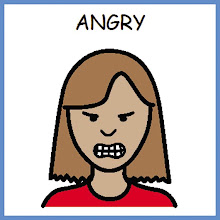The football World Cup started last Friday. Excitement filled my heart. All would have been wonderful had it not been for... EXAM REVISION.
ARRRRRGGGGGGGGHHHHHHHH.
Out of the nine matches so far, I have only watched five. FIVE. SERIOUSLY.
Why are university departments so cruel as to impose exams at the end of the academic year? Can't they find a way of letting us take them,? Do they not have an ounce of humanity left in their 1980s-goggles-wearing, shrivelled, social-life-less hearts of stone?
I have had my nose buried in Lord Byron and Coleridge poems for god knows how long. I've just written online short articles (under a different name) for some Romantic texts I'm studying.
I know what you're thinking. 'Beauty, confidence AND brains? Phwoar Caffeine Bubbles, you're so amazing and sexy. I wish every girl were like you.' What can I say? I was just born awesome.
Cup
of organic green tea, then more revision. If I don't get that First
Class degree, I will emigrate to the caves of Guinea Bissau and worship
broccoli.
So here are some thoughts regarding Coleridge's 'Rime of the Ancient Mariner'.
Many critics have attempted to decipher the meaning of Coleridge's 'Rime of the Ancient Mariner' (first published in 1798 in "Lyrical Ballads"), but still it remains unclear.
However, the moral can be more easily identified. As Coleridge himself stated in his reply to Mrs Barbauld in "The Road to Xanadu", the poem 'ought to have had no more moral than the Arabian Nights' tale of the merchant's sitting down to eat dates by the side of a well, and throwing the shells aside, and lo! a genie starts up, and says he must kill the aforesaid merchant, because one of the date shells had, it seems, put out the eye of the genie's son', suggesting that The Rime was over-moralistic.
The moral of the entire poem seems to be stated in the lines "He prayeth best who loveth best / All creatures great and small". We are reminded of one of the Biblical commandments, "Thou shalt love thy neighbour as thyself" (Matthew 22:34-40).
Several examples within the poem point to this claim.
Firstly, the Mariner's arbitrary shooting of the Albatros at the end of Part I is followed by great torments which afflict the whole crew. (Whether the two events are intraconnected or not is another question altogether, however). We are never told of the reasons for which the Mariner shoots the Albatros but some critics have compared his action to Judas's betrayal of Jesus.
Secondly, the Mariner regards the "slimy creatures" in the sea with great contempt and disgust, only viewing them as beautiful beings at the end of Part IV (when the Albatros falls from his neck and sinks into the sea).
Thirdly, the Wedding Guest's initial wariness of the Mariner through his appearance reminds us of the notion that one should not judge a book by its cover.
The Albatross does play a large part in the poem. Not only is it the object of the Mariner's crime, it also becomes a symbol of his guilt. The reader is again reminded of the crucifiction of Jesus and of Judas's betrayal in (Matthew 27). The 'cross' is alluded to in polyptotonic form at the end of Parts I, II and III, and the Albatross is indirectly compared to a Messianic figure, notably by one of the voices in Part V: "'Is it he?' quoth one, 'Is this the man? / By him who died on cross, / With his cruel bow he laid full low / The harmless Albatross."
And some thoughts regarding "The Giaour" by Lord Byron:
I disagree with the unfounded claim that Byron emphasises a mysogynistic point of view through his exploration (or lack thereof) of various characters.
In my opinion, the reason for which there is little or no description of Leila is because, contrary to the Oxford Companion to English Literature's synopsis of The Giaour, the focus is not on Leila but on Hassan's and primarily The Giaour's motives and idiosyncrasies.
Firstly, this leads us to think of the notion of Orientalism (coined by Edward Said in 1978 'Orientalism'), which in Said's opinion, was a solidly Western interpretation of Eastern mores. According to Said, Orientalism was a movement which emphasised the distinction between Western powers and Eastern civilisation, with little regard to the accuracy of their claims. It can thus be argued that Hassan, who originates from the Ottoman empire, and The Giaour who comes from "the cold clim" are symbols of Western and Eastern conflicts of ideas and mores.
Secondly, it can be argued that Leila is merely an object which denotes the conflict encompassing the Greek War Of Independence. Leila, it has been suggested by various critics, is a symbol of Greece under the power of the Ottoman Empire (represented by Hassan). The Giaour could be a symbol of the European powers allied with Greece. Due to the fact that Leila plays no significant part in the poem, the focus here is again brought on the conflict between the two powers, represented by two men. Thus the conflict between West and East is highlighted.
Thirdly, one of the main reasons for which there is little focus on Leila is that the poem is more an exploration of the torments of the Byronic hero, and the psychological ordeal he is put through. Romanticism plays a major part here, bringing to the fore the notions of the self, of love and of tortuous guilt. One must remember that the Romantic hero puts little emphasis on the effect of events on others, but rather on the effect of others on him or herself. We can suggest that The Giaour is a reflection of Byron himself and of the 'illicit' love affairs he had, notably one with his half-sister Augusta Leigh.
Copyright © Caffeine Bubbles, 14 June 2010, Warwickshire, UK


























